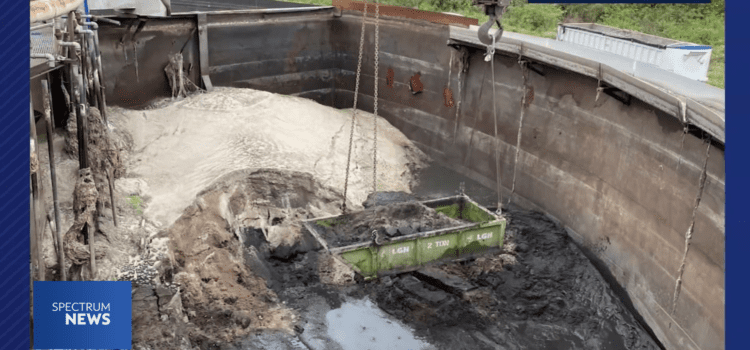Why Residents Should Be Concerned About Wastewater Violations
As your Commissioner, I believe transparency is key when it comes to issues that directly impact public health and environmental safety. Recently, the Florida Department of Environmental Protection (FDEP) issued a warning letter to the City of Winter Springs, highlighting serious violations at our wastewater treatment facility.
The facility, which is currently managed by Veolia, a private utility company contracted by the City, has been found in noncompliance with state regulations on multiple counts. These violations include excessive levels of suspended solids, fecal coliform, and nitrate—posing potential risks to our waterways, reclaimed water systems, and overall water quality.
This is an issue that affects all of us. Residents deserve to know what’s happening, why it matters, and what steps need to be taken to ensure our water is safe.
What’s in the FDEP Warning Letter?
The letter, dated January 24, 2025, outlines major compliance issues discovered during an inspection and file review:
- Total Suspended Solids (TSS) Exceedances
- Reported above the allowable limits in multiple months across 2023 and 2024
- Reached a peak of 95 mg/L in March 2024, nearly 20 times the limit
- Fecal Coliform Contamination
- Exceeded safe levels in November 2023 and multiple months throughout 2024
- In March 2024, reached 20,000 fcc/100 mL, a level that poses serious public health risks
- Continued violations in April, May, and October 2024
- Nitrate Violations
- Exceeded limits from October 2023 to February 2024
- Some months recorded levels over 45 percent above the maximum allowable threshold
- Equipment Maintenance Failures
- The facility’s flow meter has not been calibrated since 2022, despite annual calibration being required
- This is a repeat violation that was flagged as a compliance issue in 2021
Why This Matters to Residents
Health and Environmental Risks
When a wastewater facility fails to meet safety standards, the risks extend beyond the plant itself. High fecal coliform levels can contaminate reclaimed water used for irrigation, while excessive nitrates can seep into groundwater and impact drinking water quality.
Regulatory and Financial Consequences
The FDEP’s warning letter signals potential enforcement actions, including fines, mandated facility upgrades, and increased oversight. These costs would ultimately be shouldered by the city and its residents.
Operational Concerns
The continued failure to calibrate essential monitoring equipment raises concerns about management oversight. The facility has had repeated violations, which suggests a need for improved processes and accountability.
How Residents Can Stay Informed
- Attend City Commission meetings and voice concerns about water quality and environmental stewardship.
- Stay updated through official reports and updates from city leadership.
- Hold city officials accountable to ensure that Winter Springs remains a safe and responsible community.
This is an issue that affects all of us. We must take action now to protect our water resources and ensure that Winter Springs remains a place where clean water and responsible governance are top priorities.
For further details, read the full warning letter and updates here:
📍 Stay Connected
Stay tuned for more updates as this project moves forward!








